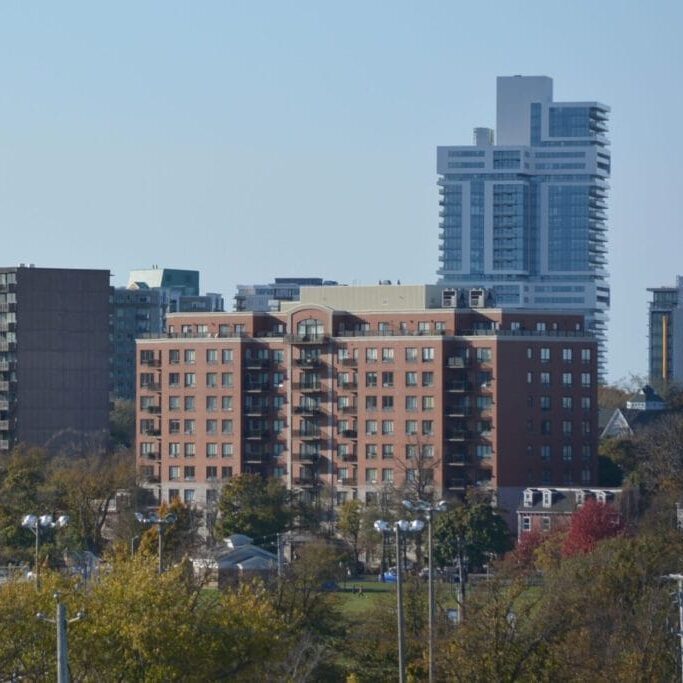
Nova Scotia continues to prioritize landlord profits over basic tenant rights
Rent caps and fixed-term loopholes perpetuate the housing crisis
The question of tenant rights in Nova Scotia has resurfaced as the NDP urged the Progressive Conservative government to enact meaningful rent control during the fall sitting of the legislature. The PC government continues to stifle efforts to adopt more progressive policies that would support middle- and low-income earners in the province.
In 2020, the Nova Scotia Liberal Party introduced a temporary two per cent rent cap—meaning that tenant’s rent cannot increase more than two percent each year—in response to the COVID-19 pandemic. This remained in place until January 2024, when the province increased the cap to 5 per cent.
In September, the government announced they are extending the five per cent cap until the end of 2027, along with other changes to the Residential Tenancies Act (RTA). Among these changes is the tightening of eviction timelines for rental arrears. Landlords will now be able to serve an eviction notice after three days of unpaid rent, whereas before they had to wait fifteen days. Moreover, tenants previously had 15 days to pay the outstanding rent or file a dispute; now they will have 10.
Fixed-term loophole remains wide open
Advocates at ACORN argue the rent cap is useless while fixed-term leases remain in use. This is because when a fixed-term lease expires, landlords are under no obligation to renew it and are within their rights to evict the tenant without cause. In fact, landlords are incentivized to remove tenants, as the rent cap only applies if the same tenant remains in the unit. This has contributed to skyrocketing rent prices across the province. At the time of the changes to the RTA, data from rentals.ca indicated the average cost of a one bedroom apartment in Halifax increased by 10 per cent in the past year and a staggering 18.2 per cent for two bedroom apartments.
Other provinces have addressed this loophole by setting strict regulations on fixed-term leases. In British Columbia, when a fixed-term lease ends, it automatically becomes a month-to-month lease, unless the landlord intends to occupy the unit. Outside of specific scenarios like this, landlords cannot force the tenant to vacate or sign another fixed-term lease.
NDP calls for rent caps tied to units
The NDP proposes that rent caps be tied to units and not tenants, so that landlords are restricted in their ability to increase rent, even when a tenant moves out. This would remove the current financial incentive to evict tenants and slow the rapidly rising cost. While many lobbyists dismiss this idea as outlandish, similar policies already exist in P.E.I.
Advocates say a compliance and enforcement unit is needed
A newly released report recommends Nova Scotia create a compliance and enforcement unit for residential tenancies, an enforcement system that already exists in Ontario. The provincial government commissioned the report in 2022, but refused to release the findings until this September. The government has declined to follow these recommendations, citing high operating costs and logistical challenges. Representatives from Dalhousie Legal Aid spoke to the dire need for such a system, highlighting examples of large corporate landlords who flagrantly violate the law without consequence.
Are landlords more deserving than tenants?
Tim Houston’s government says they are balancing the needs of both landlords and tenants, falsely implying that landlords are as vulnerable as renters. Opponents of rent control evoke the image of mom-and-pop landlords renting their basement suite to cover mortgage payments. They allege that fixed-term leases are necessary because they cannot pay their bills while adhering to the rent cap. The reality is that the 5 per cent cap is not tied to inflation or interest rates and more than compensates for increased mortgage payments and operating costs. Landlords are still generating profit, and even if they weren’t, are their investments more important than the housing security of Nova Scotians?
Interestingly, the amendments to the RTA also include a new clause related to subletting. Tenants are now prohibited from subletting their unit for more than they currently pay in rent. Why are landlord investments protected, while tenants are barred from this revenue stream? These regulations send the message that it is acceptable to profit from housing, but only if you are rich enough to own property.
Is housing a human right or a commodity?
Rent control is a band-aid solution to the overarching problem of commodified housing. While housing remains an avenue for individuals and corporations to generate profit, we will never truly solve the housing and homelessness crises. Nova Scotia needs state-owned housing that is accessible, affordable and dignified for diverse community members. Nevertheless, while we advocate for increased public housing going forward, we must continue fighting for those that are suffering under inadequate rent control today.






